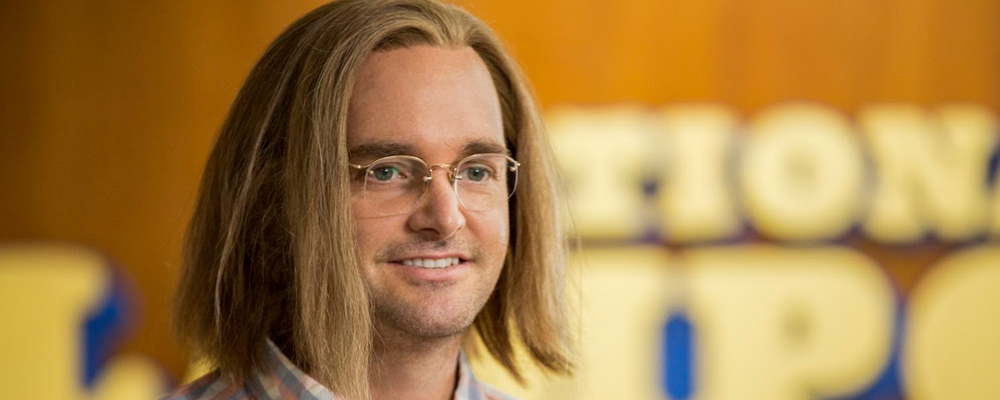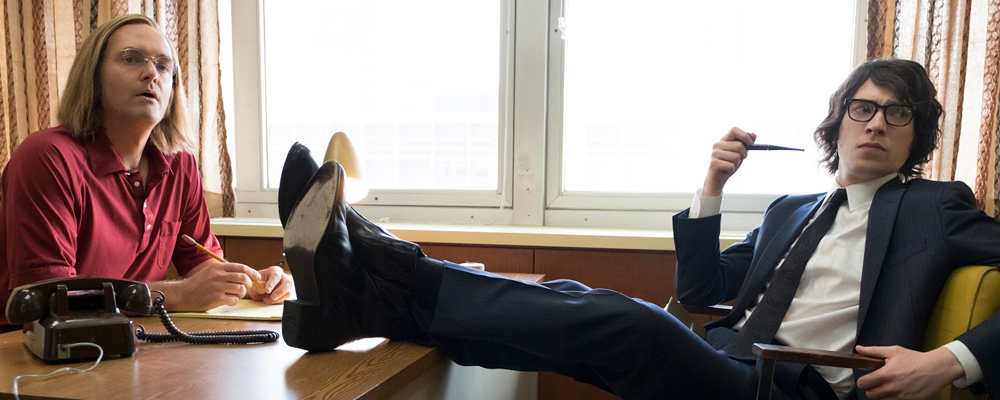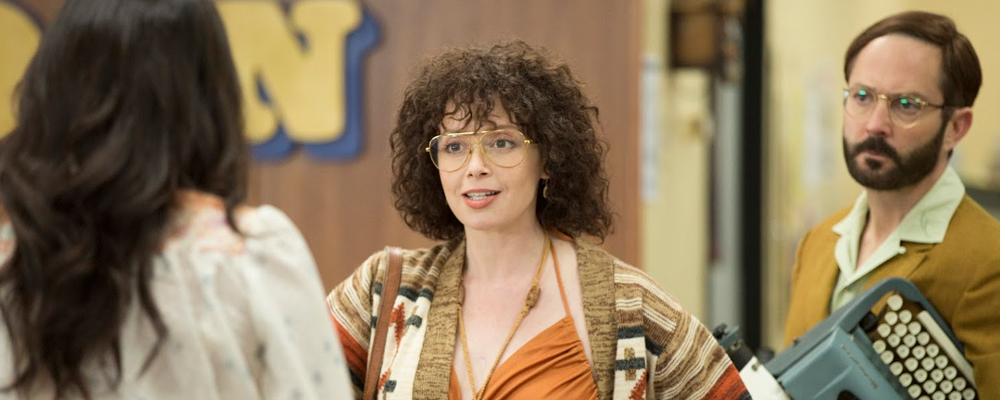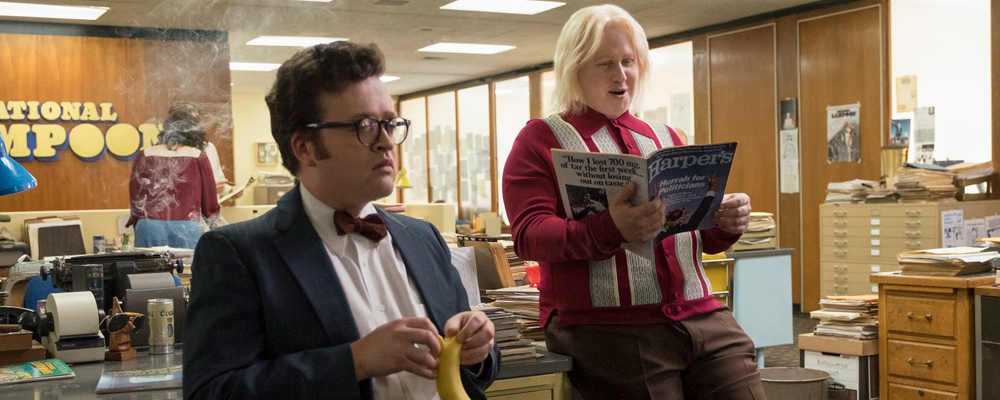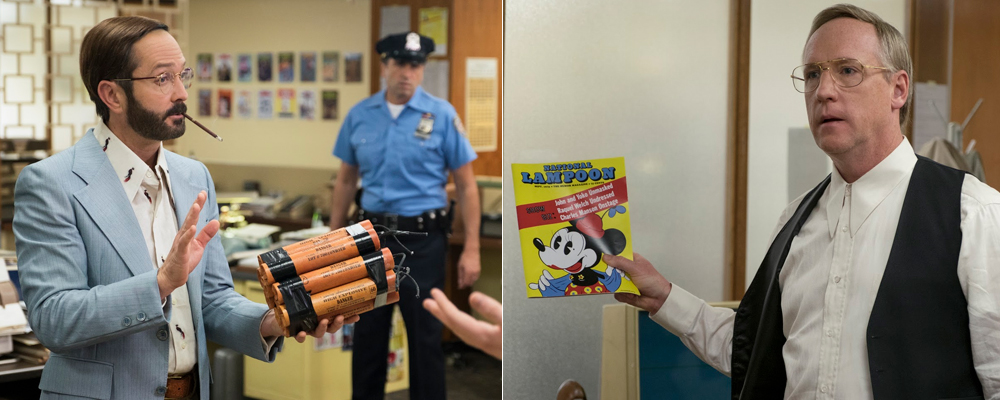‘A Futile and Stupid Gesture’ Paints Compelling Portrait of National Lampoon Co-Founder
Sandra Miska
Few people were as influential on the counterculture humor movement that came out of the seventies as National Lampoon magazine co-founder Doug Kenney, yet few people know the name. “A Futile and Stupid Gesture,” a biopic from David Wain based on the book by Josh Karp, sets out to rectify this. Former “Saturday Night Live” actor Will Forte stars here as Kenney, and the result here is an intriguing portrait of a genius whose insecurities and demons led him down a path that ended with his untimely demise in 1980 at age 33.
The main events of the film start at Harvard in 1964, where Doug, “a middle-class midwestern dork,” first hooks up with Henry Beard (Domhnall Gleeson), a bookish guy from New York who more easily fits into the mold of a Harvard man. Despite their differences, Doug and Henry find success working together at the Harvard Lampoon. When their college career draws to a close, Henry looks to the traditional path of law school, but Doug, who sees no reason why the party has to end, convinces him to take a gamble and join him in founding a national version of the Lampoon. In New York, publisher Matty Simmons (Matt Walsh) takes a chance on them and serves as a parental figure of sorts, or at least attempts to. The guys set up shop with some of the brightest young comedy writers they could find, including loose cannon Michael O’Donoghue (Thomas Lennon), subversive Brit Tony Hendra (Matt Lucas), “straight-up weirdo” Brian McConnachie (Neil Casey), and Anne Beatts (Natasha Lyonne), the sole woman in the bunch. To the surprise of many, the mag becomes a success, spawning a radio show that attracts the likes of Bill Murray (Jon Daly), Gilda Radner (Jackie Tohn), John Belushi (John Gemberling), Christopher Guest (Seth Green), Harold Ramis (Rick Glassman), and Chevy Chase (Joel McHale), the latter becoming one of Doug’s closest friend.
While spouting out the comedic content comes easy to Doug, the day to day running of a comedy empire is a little more daunting. The more responsible Henry takes on much of the burden, but even he has his limits, and Doug, who is prone to running off when things get tough, eventually chases him away, something he also does with his wife, Alex (Camille Guaty).
A pivotal moment comes for Doug when a little show called “Saturday Night Live” debuts, luring away much of the Lampoon’s writing staff and talent. It can be argued that there would be no SNL without Doug, but when creator Lorne Michaels (Armen Weitzman) offers him a job, he refuses the “handout.” Instead, he takes his “if you can’t join ‘em, beat ‘em” and aims higher, deciding to turn his sights to film, and the truly inspiring result is “Animal House,” the “classic tale of slobs versus snobs” that is still considered the gold standard of the raunchy comedy. Here, the viewer is transported back to that carefree time “that never was.” Doug followed this massive success up with another gem, “Caddyshack.” In a surprising revelation, we learn that Kenney wasn’t happy with the golf comedy, his main issue being with the infamous mechanical gofer, something that was pushed on him by studio head (Joe Lo Truglio).
Martin Mull plays “Modern Doug,” the narrator who represents the man Kenney never got to become. It’s an interesting narrative device, but it can the viewer out of the story, as the older man repeatedly breaks the fourth wall. Also distracting at times are some of the actors, many of whom are significantly older than the people they are portraying. Especially in the beginning, it’s hard for one to buy 47-year-old Forte as a college freshman, but he becomes more believable as the film progresses. Also, some might get a kick out of Lennon and McHale playing their roles, although one may wonder if these parts would have been better suited to younger, lesser-known actors who could have more easily disappeared into their characters, like Daly does with Murray. In a spot-on impression of Murray as his SNL character Nick the Lounge Singer, he acts as Doug’s inner voice during one of the film’s most memorable scenes.
Also perfectly cast is Emmy Rossum as Kathryn Walker, the smart and sassy actress who becomes Doug’s partner during the last years of his life. Rossum is enjoyable to watch as she not only exchanges witty banter with Forte, but also makes Kathryn’s frustrations palpable as she tries to repeatedly tries to make her man see reason. “In what world are you a failure?” She asks her boyfriend, the man behind two of the biggest comedies ever, in one particularly poignant scene.
The film’s real love story, however, is that of Doug and Henry. A true bromance if there ever was one, the film tracks their up and downs, and it’s truly heartbreaking to watch as they grow apart but still manage to maintain their bond. Major props here to Gleeson, a brilliant actor who completely transforms himself no matter what the role, be it a “Star Wars” villain or a magazine editor.
“A Futile and Stupid Gesture” premieres Jan. 26 on Netflix.

